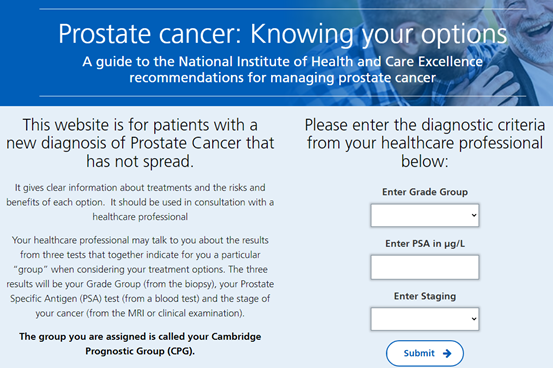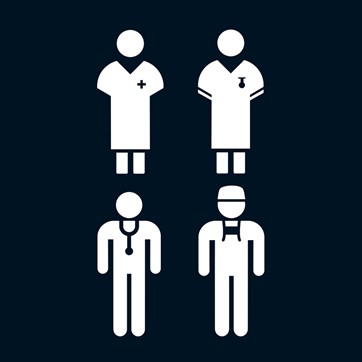Resources for your patients
Patient perspective
Uptake and adherence to active surveillance continues to be a challenge. Being diagnosed and living with untreated prostate cancer can have a negative impact on men's psychological wellbeing, quality of life and AS adherence. More recent studies have helped identify some of the key priorities for health care professionals and patients, that should be considered.
Our insights on the information and support needs of men eligible for active surveillance highlight:
|
|
|
|
|
Resources for your patients
Listed below are some of our key resources for men eligible for active surveillance:
This fact sheet is for anyone who wants to know more about active surveillance, which is a way of monitoring localised (early) prostate cancer rather than treating it straight away. A man's partner, family or friends might also find this resource helpful.
Our latest evidence-based information on active surveillance.
We run a monthly group chat from men who are on active surveillance and want to share experiences and ask questions to other men on the same treatment. The group chat happens on the 2nd Tuesday of each month from 7-8pm.
Watch Robin's story and hear about his experience of being on active surveillance.
We also encourage men with localised prostate cancer to speak to our Specialist Nurses for more information and support.
‘Prostate cancer: Knowing your options’
The East of England Cancer Alliance are supporting men with localised prostate cancer to choose treatment through an evidence-based online tool, which provides men with relevant information based on their Gleason Group, PSA and Stage of disease. The outputs from the tool are based on NICE clinical guidelines and support men to understand the risks and benefits of each option.
For some men, using an online decision-making tool can be extremely helpful. I recently spoke to a gentleman after he used the East of England Cancer Alliance website. He was shocked to find that with his diagnosis and individual results, radical treatment only reduced his risk of death from prostate cancer by 2% at 10 years and 4% at 15 years. This completely changed his mind set and supported him to decide on the right treatment for him.



